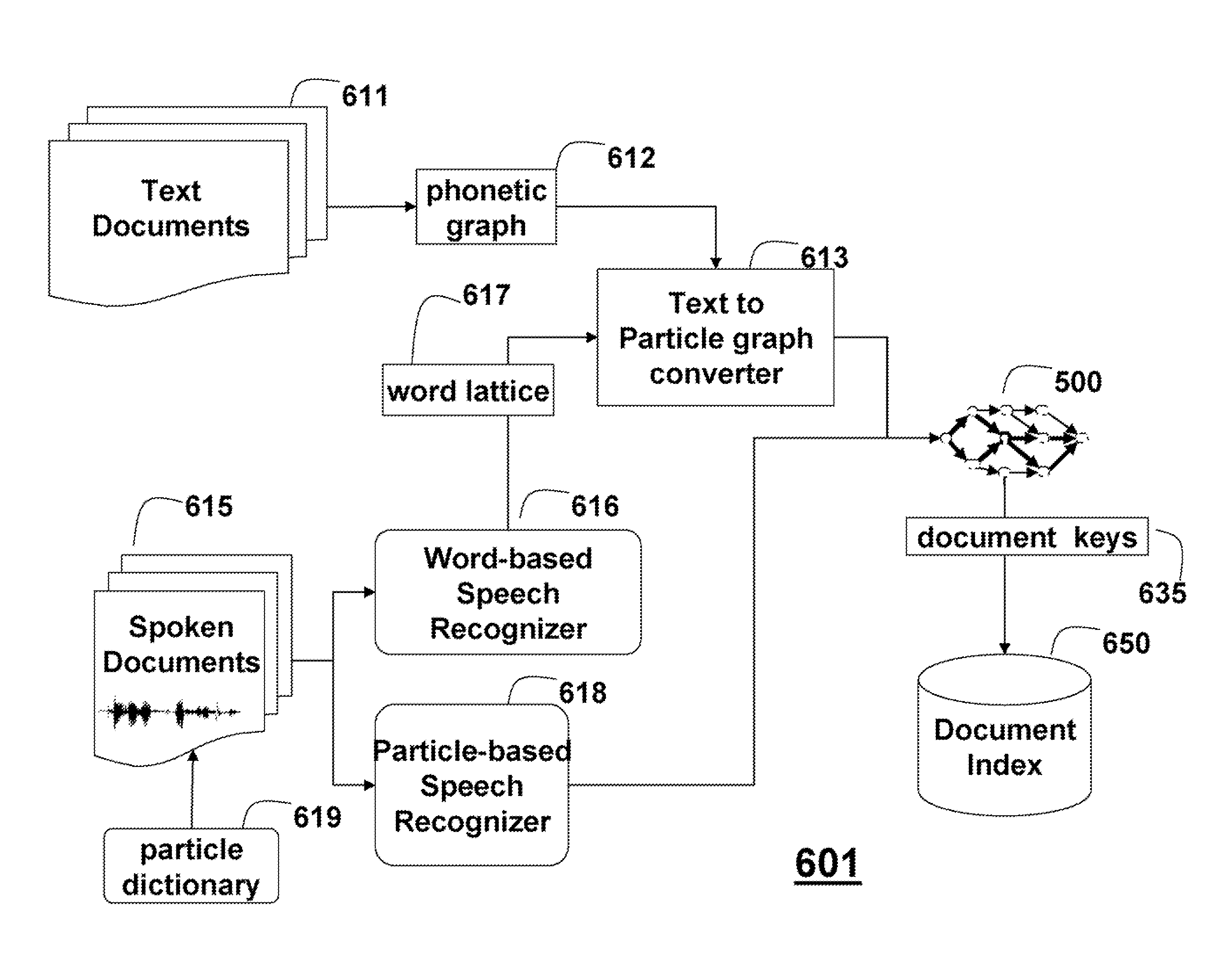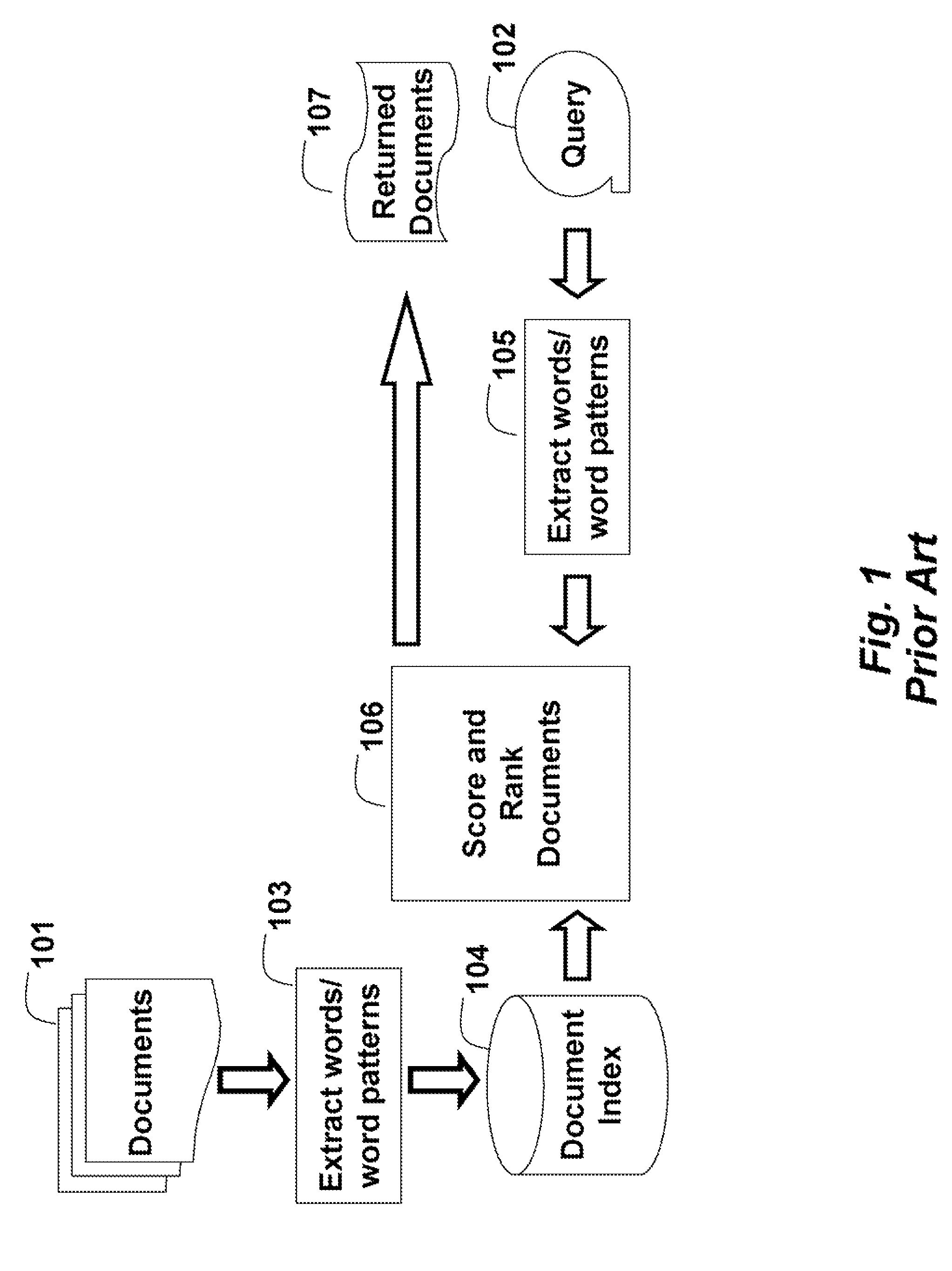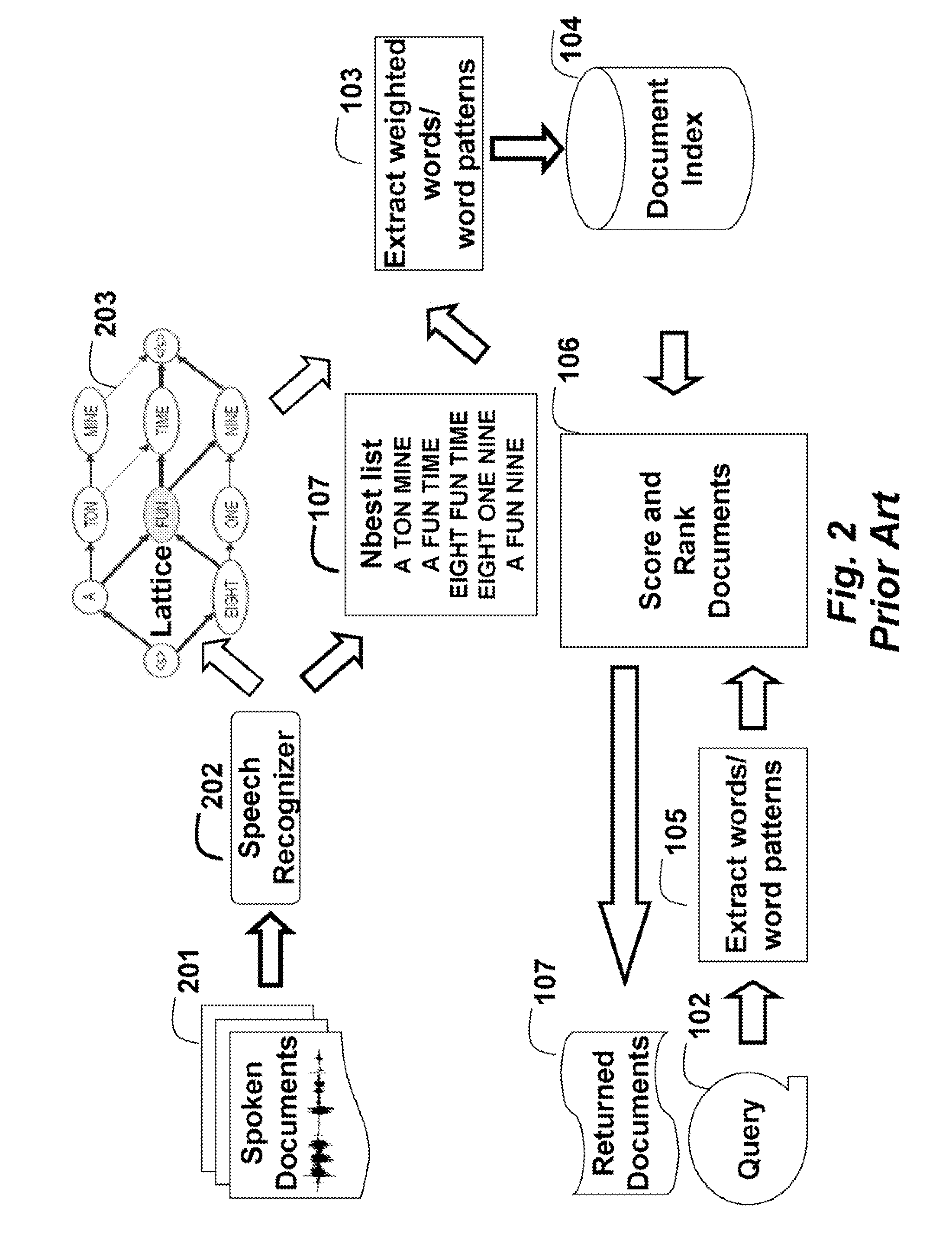Method for indexing for retrieving documents using particles
a technology of particles and documents, applied in the field of information retrieval, can solve the problems of severe restrictions and severe restrictions, and achieve the effects of avoiding system vocabulary limitations, reducing memory and cpu, and reducing the number of resources
- Summary
- Abstract
- Description
- Claims
- Application Information
AI Technical Summary
Benefits of technology
Problems solved by technology
Method used
Image
Examples
Embodiment Construction
[0041]Particle-Base Document Indexing
[0042]The embodiments of our invention provide a method for indexing documents and retrieving the documents based on particles, and not words as in the prior art.
[0043]Particles themselves are not new, see Whittaker, E. W. D., Woodland, P. C., “Particle-based language modelling”, International Conference on Speech and Language Processing (ICSLP), 2000. U.S. Pat. No. 7,089,188, “Method to expand inputs for word or document searching,” issued to Logan et al. on Aug. 8, 2006, and U.S. Pat. No. 7,181,398, “Vocabulary independent speech recognition system and method using subword units,” issued to Thong, et al. on Feb. 20, 2007, However, there the particles are used to recognize words, and it is words that are indexed and searched during document retrieval.
[0044]Particle indexing and retrieval is based on our observation that the pronunciations of words can be described by a sequence of one or more sound units such as phonemes or syllables. Consequent...
PUM
 Login to View More
Login to View More Abstract
Description
Claims
Application Information
 Login to View More
Login to View More - R&D
- Intellectual Property
- Life Sciences
- Materials
- Tech Scout
- Unparalleled Data Quality
- Higher Quality Content
- 60% Fewer Hallucinations
Browse by: Latest US Patents, China's latest patents, Technical Efficacy Thesaurus, Application Domain, Technology Topic, Popular Technical Reports.
© 2025 PatSnap. All rights reserved.Legal|Privacy policy|Modern Slavery Act Transparency Statement|Sitemap|About US| Contact US: help@patsnap.com



